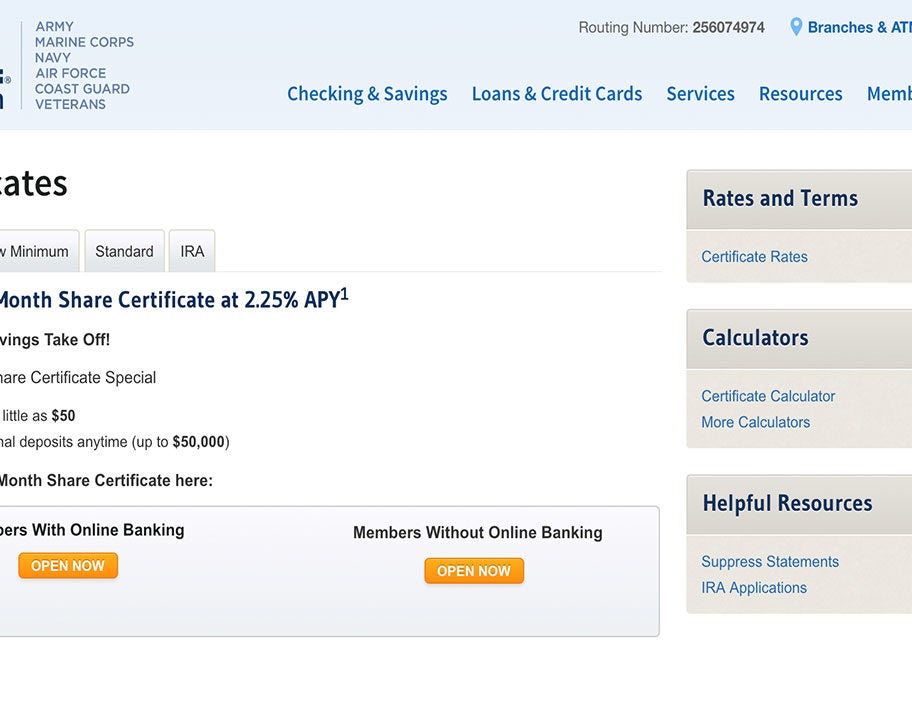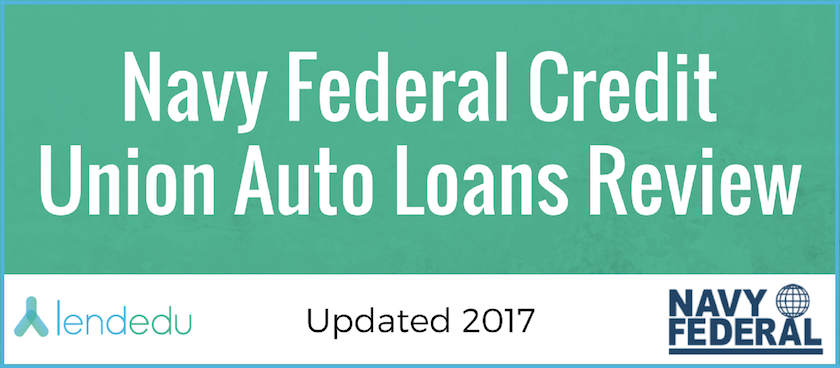Overview of Used Car Rates

The used car market is a dynamic arena, constantly influenced by a complex interplay of factors. Understanding these factors is crucial for consumers and businesses alike, enabling informed decisions about purchasing and selling used vehicles. This overview delves into the current trends, driving forces, and regional variations in used car pricing.
Current Used Car Market Trends
The used car market is currently experiencing a period of fluctuating prices. While some segments show stability, others exhibit substantial price increases or decreases. These shifts are often linked to supply chain disruptions, manufacturing delays, and consumer demand. The market remains volatile, requiring careful consideration of various factors before making any purchase or sales decisions.
Factors Influencing Used Car Prices
Several key elements contribute to the fluctuation in used car prices. These include, but are not limited to:
- Supply and Demand Dynamics: The relationship between the availability of used cars and the desire of consumers to buy them directly affects pricing. A high demand with low supply typically leads to higher prices. Conversely, a surplus of cars available for sale will likely result in reduced prices.
- Manufacturing Delays and Shortages: Manufacturing delays and shortages of crucial components for new cars can impact the used car market. When new car production is constrained, the used car market often absorbs the impact by experiencing price increases.
- Inflation and Interest Rates: Inflation and rising interest rates can influence consumer spending habits. This can impact the demand for used vehicles, potentially affecting their prices.
- Economic Conditions: General economic conditions, including employment rates and consumer confidence, significantly affect the used car market. During periods of economic uncertainty, demand for discretionary purchases, like vehicles, may decrease, resulting in lower prices.
Regional Variations in Used Car Prices
Used car prices vary significantly across different regions. This disparity is attributable to several factors, including local economic conditions, supply chain logistics, and consumer demand.
| Region | Average Price | Influencing Factors |
|---|---|---|
| Northeast US | $25,000 | High demand, relatively limited supply due to transportation challenges, and a higher cost of living. |
| Midwest US | $22,500 | Moderate demand, more readily available supply due to transportation infrastructure, and a lower cost of living. |
| Southwest US | $26,000 | High demand, limited supply due to regional demand and availability of specific models, and moderate cost of living. |
| Southeast US | $23,000 | Moderate demand, moderately available supply, and a relatively lower cost of living. |
Navy Federal Used Car Loans
Navy Federal Credit Union offers competitive used car loan options to its members, often with favorable interest rates and flexible terms. These loans are tailored to meet the needs of a wide range of borrowers, from those seeking quick approvals to those looking for extended repayment periods. Understanding the loan types, interest rates, approval process, and comparison with other lenders is crucial for making an informed decision.
Navy Federal’s used car loans aim to provide accessible financing options for members, reflecting the credit union’s commitment to supporting its members’ financial well-being. The loan structure and associated costs are designed to be transparent and straightforward, enabling members to budget effectively.
Loan Types Offered
Navy Federal provides various used car loan options, catering to different financial situations and needs. These loan types typically include fixed-rate loans, offering consistent monthly payments, and variable-rate loans, potentially adjusting with market fluctuations. The specific options available may vary depending on the individual member’s creditworthiness and the specific car being financed.
Interest Rates and Terms
Interest rates on Navy Federal used car loans are influenced by factors such as the borrower’s credit score, the loan amount, and the prevailing market conditions. Terms, such as loan duration, are typically flexible, allowing members to choose a repayment period that suits their financial plans. Members with excellent credit scores often qualify for lower interest rates and more favorable terms.
Loan Approval Process and Criteria
The loan approval process at Navy Federal typically involves submitting an application with necessary documentation, including proof of income, employment, and the vehicle’s details. Loan officers review applications and assess the borrower’s creditworthiness, determining eligibility based on established criteria. The process is designed to be efficient and transparent, with clear communication throughout the application stage.
Comparison with Other Lenders
Compared to other lenders, Navy Federal often presents competitive interest rates and terms for used car loans, especially for members who meet their eligibility criteria. However, individual circumstances and specific loan requirements may differ, necessitating a comprehensive comparison across various options before making a final decision. Other lenders may offer different incentives or promotional rates, impacting the overall cost of borrowing.
Loan Options Table
| Loan Type | Interest Rate (Example) | Terms (Example) |
|---|---|---|
| Fixed-Rate Loan | 4.5% – 7.5% | 24-72 months |
| Variable-Rate Loan | 3.0% – 6.0% (initial) | 36-84 months |
| Member-Specific Promotional Loan | 3.0% – 5.0% (limited time) | 24-60 months |
Comparing Used Car Prices and Loan Options
Understanding the interplay between used car prices and Navy Federal loan options is crucial for securing the best possible deal. This section delves into the relationship between market values and financing terms, enabling informed decision-making throughout the car-buying process. Choosing the right loan option can significantly impact the overall cost of ownership.
Comparing average used car prices with Navy Federal loan interest rates reveals a direct correlation. Higher interest rates translate to higher monthly payments, impacting the affordability of a particular vehicle. Conversely, favorable interest rates allow for more manageable monthly payments, potentially expanding the range of vehicles within budget. This analysis is critical for consumers aiming to minimize the financial burden of car ownership.
Factors Influencing Used Car Loan Decisions
Several key factors play a crucial role in determining the best used car loan option. Creditworthiness, loan terms, and prevailing market conditions are among the most significant. A strong credit history often translates to lower interest rates, while longer loan terms result in lower monthly payments but a higher total cost of borrowing over the loan’s lifespan. Market fluctuations also influence the availability and cost of loans.
Potential Savings Through Loan Options
Different loan options at Navy Federal can yield substantial savings. Considering various terms, such as loan duration and interest rates, allows consumers to tailor their financing to their individual needs and financial situation. A longer loan term might result in a lower monthly payment, but higher total interest paid over the loan period. Conversely, a shorter term could mean higher monthly payments but potentially lower overall interest costs. Careful evaluation of different loan options is essential to maximize savings.
Table of Used Car Prices and Loan Options
This table illustrates how different loan options can impact monthly payments for various used car prices. The figures are estimates and may vary based on individual credit scores and specific loan terms.
| Used Car Price | Loan Option (Term: 48 months, Interest Rate: 6%) | Estimated Monthly Payment |
|---|---|---|
| $15,000 | Navy Federal Loan | $350 |
| $20,000 | Navy Federal Loan | $465 |
| $25,000 | Navy Federal Loan | $580 |
| $15,000 | Alternative Lender Loan (Term: 60 months, Interest Rate: 7%) | $275 |
| $20,000 | Alternative Lender Loan (Term: 60 months, Interest Rate: 7%) | $365 |
| $25,000 | Alternative Lender Loan (Term: 60 months, Interest Rate: 7%) | $455 |
Note: The table provides illustrative examples. Actual interest rates and monthly payments will vary based on individual credit scores and loan terms. Shopping around and comparing offers from various lenders is recommended.
Finding the Right Used Car

Finding the perfect used car involves more than just browsing listings. It requires a strategic approach, meticulous inspection, and a firm understanding of negotiation tactics. This process ensures you secure a reliable vehicle within your budget and avoid costly mistakes. Careful consideration of these factors can save you significant time and money in the long run.
Strategies for Finding Suitable Used Cars
Locating suitable used cars within your budget involves proactive searching and leveraging various resources. Utilize online platforms, such as classifieds, dealership websites, and automotive marketplaces. Compare prices across different sources and consider factors like mileage, condition, and features to identify potential matches. Networking with friends and family, and seeking recommendations, can also yield valuable leads on trustworthy sellers. Don’t limit your search to local listings; expanding your geographic radius might uncover more options that align with your needs and price range. Consider dealerships with certified pre-owned programs for added assurance of quality.
Factors to Consider When Inspecting a Used Car
A thorough inspection is crucial to identifying potential problems and ensuring the car’s condition aligns with its advertised specifications. Examine the exterior for signs of damage, such as dents, scratches, or rust. Check the interior for wear and tear, including the condition of the upholstery, dashboard, and other components. Inspect the engine compartment for leaks, unusual noises, or any signs of neglect. Pay close attention to the vehicle’s documentation, including maintenance records, title history, and any outstanding financing agreements. If possible, have a trusted mechanic perform a comprehensive inspection to uncover any hidden issues.
Resources for Checking Vehicle History Reports
Vehicle history reports offer valuable insights into a car’s past. These reports often reveal accident history, title issues, and any prior repairs. Utilize online services specializing in vehicle history reports, such as Carfax and AutoCheck. These reports are instrumental in making informed decisions about a vehicle’s condition and potential risks. The information provided in these reports can significantly influence your purchasing decision. Be sure to carefully review all details and verify accuracy against other sources.
Negotiating a Fair Price for a Used Car
Negotiation is a crucial aspect of securing a fair price for a used car. Research comparable vehicles to understand the market value and identify areas where you can leverage price negotiation. Have a clear budget in mind and be prepared to walk away if the price doesn’t meet your expectations. Be polite and respectful during the negotiation process. Know your limits and don’t be afraid to express your concerns about potential issues. Focus on achieving a mutually beneficial agreement. Be prepared to counter-offer if the initial price is significantly above market value.
Car Inspection Checklist
- Exterior: Inspect for dents, scratches, rust, and any signs of prior damage. Check the alignment and condition of the body panels.
- Interior: Evaluate the condition of the upholstery, dashboard, and other interior components. Look for signs of wear and tear, such as stains, rips, or tears.
- Engine Compartment: Examine the engine compartment for leaks, unusual noises, and signs of neglect. Check for proper fluid levels and the condition of hoses and belts.
- Mechanical: Test-drive the vehicle thoroughly, paying attention to any unusual noises or vibrations. Have a trusted mechanic perform a pre-purchase inspection if possible.
- Documentation: Verify the vehicle’s title, maintenance records, and any outstanding financing agreements. Thoroughly review all documentation for accuracy and completeness.
Negotiation Strategies
- Research: Research comparable vehicles to establish a fair market price range. Use online resources and automotive marketplaces to find similar models with similar mileage and condition.
- Budget: Establish a clear budget beforehand and stick to it. Be prepared to walk away if the price is significantly above your limit.
- Counter-offers: Be prepared to make counter-offers to reach a mutually agreeable price.
- Concerns: Clearly express any concerns you have about the vehicle’s condition or documentation. Be prepared to negotiate based on these concerns.
- Walk Away: If the seller isn’t willing to negotiate a fair price, be prepared to walk away from the deal.
Tips for Saving Money on Used Cars

Saving money on a used car involves a strategic approach, combining thorough research, savvy negotiation, and understanding the market. By employing these techniques, you can significantly reduce the overall cost and secure a vehicle that meets your needs without breaking the bank.
Thorough Research is Crucial
Thorough research is the cornerstone of any successful used car purchase. Understanding the market value of comparable vehicles is essential. This involves checking online resources, such as Kelley Blue Book (KBB) and Edmunds, for used car pricing data. Compare prices across various dealerships and private sellers in your area to identify trends and potential bargains. Consider factors such as the vehicle’s year, make, model, mileage, condition, and optional features when evaluating different options. This comprehensive approach ensures you’re not overpaying for a used car.
Buying from a Reputable Dealer Offers Advantages
Buying from a reputable dealer provides several advantages over purchasing from private sellers. Reputable dealers often offer warranties and service contracts, which can protect you from unforeseen mechanical issues. They typically have a transparent pricing structure, allowing for more straightforward negotiations. Moreover, they usually handle paperwork and financing, streamlining the entire purchase process. These factors often translate into greater peace of mind and a smoother overall transaction.
Negotiation Strategies for Lower Prices
Negotiating the price of a used car can be a powerful tool for saving money. Knowing the market value of the vehicle is paramount. Approach the negotiation with confidence and a clear understanding of your budget. Present a reasonable counter-offer, acknowledging the dealer’s perspective while firmly advocating for your needs. Be prepared to walk away if the offer doesn’t meet your expectations. Remember, a successful negotiation involves understanding the dealer’s profit margin and positioning your offer strategically.
Flowchart: Steps to Saving Money on Used Cars
| Step | Action |
|---|---|
| 1 | Research: Thoroughly research the market value of similar used cars using online resources (e.g., KBB, Edmunds). Compare prices across various dealerships and private sellers. |
| 2 | Identify Targets: Identify dealerships or private sellers offering vehicles within your budget and desired specifications. |
| 3 | Pre-Inspection: If possible, arrange a pre-purchase inspection by a trusted mechanic. |
| 4 | Negotiate: Approach negotiations with confidence, armed with your research. Present a counter-offer that aligns with the market value and your budget. Be prepared to walk away if the offer is unreasonable. |
| 5 | Finalize: If satisfied with the offer, proceed with the necessary paperwork and financing. Ensure all aspects of the transaction are clear and documented. |
Financing a Used Car with Navy Federal
Navy Federal Credit Union offers attractive financing options for used car purchases, catering to the specific needs of military and government employees and their families. Understanding the benefits, options, and application process is crucial for securing a favorable loan and avoiding potential pitfalls. This section details the advantages of Navy Federal financing, explores various loan options, and provides a step-by-step guide to applying for a used car loan.
Financing a used car through Navy Federal can be advantageous for members due to competitive interest rates, potentially lower monthly payments, and convenient online access to loan applications and account management. This often translates into significant savings compared to other lenders.
Benefits of Navy Federal Used Car Loans
Navy Federal’s reputation for competitive rates and exceptional customer service often translates into favorable loan terms for used cars. This can be a substantial advantage for consumers seeking financial security and affordability in their vehicle purchase.
- Competitive Interest Rates: Navy Federal frequently offers interest rates that are more competitive than those available from other financial institutions. This can directly reduce the overall cost of the loan and monthly payments.
- Convenient Online Application and Management: The streamlined online application and account management process makes it easy for members to apply for and track their loan applications. This digital approach provides significant convenience and flexibility.
- Membership Advantages: Navy Federal members often benefit from exclusive loan programs and personalized service that might not be available to non-members.
Pros and Cons of Different Financing Options
Navy Federal offers various loan options to cater to different financial situations and needs. Understanding the pros and cons of each option is crucial for making an informed decision.
- Fixed-Rate Loans: Fixed-rate loans offer the advantage of predictable monthly payments. However, fluctuating market conditions might impact the loan’s overall cost over the loan’s term. This stability can be beneficial for budgeting, but potential interest rate increases are possible.
- Variable-Rate Loans: Variable-rate loans often have lower initial interest rates, potentially leading to lower monthly payments in the beginning. However, changes in market interest rates could lead to higher monthly payments later in the loan term.
- Other Special Financing Options: Navy Federal may offer specific programs for members with unique financial circumstances, such as low-down payment loans or loans tailored to specific needs. These options could be particularly helpful for those with limited savings or those seeking more flexible financing terms.
Navy Federal Used Car Loan Application Process
Applying for a used car loan with Navy Federal is a straightforward process. Following these steps ensures a smooth and efficient application.
- Pre-Approval: Request a pre-approval for a used car loan online or through a Navy Federal representative. This step helps determine the loan amount and interest rate you might qualify for, saving time and effort in the actual application process.
- Gather Necessary Documents: Collect the required documentation, which might include proof of income, identification, and details about the used car. This step ensures the application process proceeds without delays or complications.
- Complete the Application: Fill out the online application accurately, providing all necessary information. Carefully review the application for any errors before submission.
- Review and Approval: Navy Federal reviews the application and approves or denies the loan based on established criteria. The approval time may vary, but usually takes a few days to several weeks.
- Closing and Financing: Once the loan is approved, the final steps involve signing necessary documents and arranging for the vehicle’s financing and transfer of ownership.